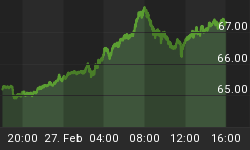A few years ago, Elon Musk said that Tesla could sell more cars in China than in America in the long term, because the Chinese market is just so huge.
Indeed, China is currently Tesla’s second-largest market in terms of revenues behind the United States. But the escalating trade war between China and the United States could complicate Tesla’s mission to successfully compete on the rapidly growing Chinese EV market where local EVs are also advancing at an impressive rate.
In the trade spat, China has just announced that it could add more tariffs on imported American cars, on top of an existing 25-percent import duty for foreign-made vehicles. For carmakers without local Chinese manufacturing—such as Tesla—more tariffs would render their cars even more expensive niche products.
On the one hand, Musk has praised China’s EVs policies. But on the other hand, he has also called on U.S. President Donald Trump to level the playing field for car tariffs between the U.S. and China—and he did this a couple of weeks before the current heated trade row.
Musk has been trying to reach a deal on a local Tesla factory in China, but reports have it that he refuses to allow China to own a piece of the plant.
Earlier this year, reports suggested that Tesla and China disagree over the future ownership of a Tesla factory in Shanghai, which means that without local Chinese production, the U.S. EV maker continues to face high import taxes that make its cars much more expensive than those of local rivals.
China insists that all vehicle-manufacturing plants should be joint ventures with local partners, and currently all foreign carmakers must have a Chinese partner to manufacture vehicles locally. But Tesla wants to have full ownership of the future factory. Related: Musk Sleeping At Tesla Factory To Address Model 3 Woes
Producing Teslas locally could help Tesla sell its EVs cheaper in China, which is pushing for an aggressive adoption of EVs with policies for carmakers selling or importing vehicles. In what has been dubbed “the world’s biggest EV plan”, China is introducing a so-called cap-and-trade policy, under which all carmakers—local manufacturers or importers with more than 30,000 traditional car sales annually—must earn a score of at least 10 percent for zero or low-emission vehicles, beginning in 2019.
Theoretically, the huge Chinese market and the Chinese EV policies would have been the perfect ground for Tesla to beat its competition in China. But the 25-percent import duty and the growing possibility of Beijing slapping more tariffs on U.S. cars could slow down Tesla’s sales.
Last year, Tesla raised its revenues in China to US$2 billion, up from US$1 billion in 2016, its 2017 annual report shows. China is the second-largest market for the EV maker after the United States.
Now the escalating U.S.-China trade war could make things more difficult for American carmakers, and Tesla in particular. In the latest tit-for-tat, the U.S. proposed tariffs on products from sectors such as information technology, communication technology, robotics, and aerospace. China retaliated by announcing new tariffs on 106 U.S. products, including cars. If China follows through with this retaliation by slapping tariffs on cars and car parts, Tesla—without local production, unlike almost all other foreign carmakers including Detroit’s Big Three—will suffer the most, according to analysts.
“The jump in tax levy hurts Tesla the most as it had not yet started local production in China,” Cui Dongshu, the secretary general of China’s Passenger Car Association told Bloomberg. “For GM and Ford, they can always make up with China-produced ones.”
Related: Warren Buffett Secures $125B In Real Estate Deals
Barclays analyst Brian Johnson also thinks that Tesla will be the most hurt U.S. carmaker from the trade war. If China follows through with its promise to retaliate to the currently proposed U.S. tariffs, Tesla buyers in China may have to pay a 50-percent tariff.
“The tariff will add an extra premium on top of a vehicle price that was already ahead of the base U.S. price, related to transport costs and duties,” Johnson wrote in a note Wednesday, as carried by CNBC.
“And while these steep import tariffs are part of the upper-end luxury market (and in some respects add to the prestige factor for luxury cars), for lower-luxury vehicles than the Model 3, a 50 percent premium would be significant,” the analyst said.
By Tsvetana Paraskova for Oilprice.com
More Top Reads From Safehaven.com:
- Why Crypto Millionaires Are Trading Over Skype
- The Most Traded ETF In U.S. Stock Markets
- The Inevitable Collapse Of China's Economy
















